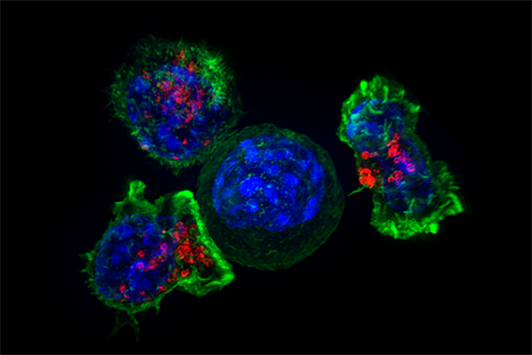
A cancer cell (blue, center) can elude attack by immune cells (such as these T cells shown in green and red) by sequestering the mutated proteins that would otherwise signal its identity as a "foreign" invader away from the cell’s surface. Image credit: Alex Ritter, Jennifer Lippincott Schwartz and Gillian Griffiths/National Institutes of Health
Researchers in the Jacks and White Laboratories have identified a new dosing routine for a well-studied class of anti-cancer drugs that makes tumor cells more easily recognizable to the immune system. The team found that trading traditional bolus dosing for sustained, low-level dosing of heat shock protein (HSP) inhibitors increased the number of mutated protein fragments presented on the surfaces of tumor cells. Their approach, described in Clinical Cancer Research, could improve immunotherapy's effectiveness across more cancer types with fewer side effects and reinvigorate clinical investigations of promising HSP inhibitors. The research was inspired by and builds on work, partly supported by the Koch Institute Frontier Research Program, of late MIT biologist and KI member Susan Lindquist. Read more.